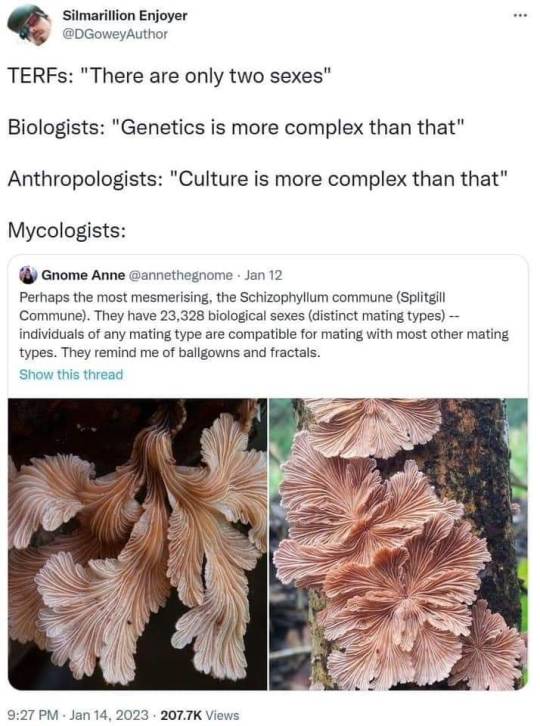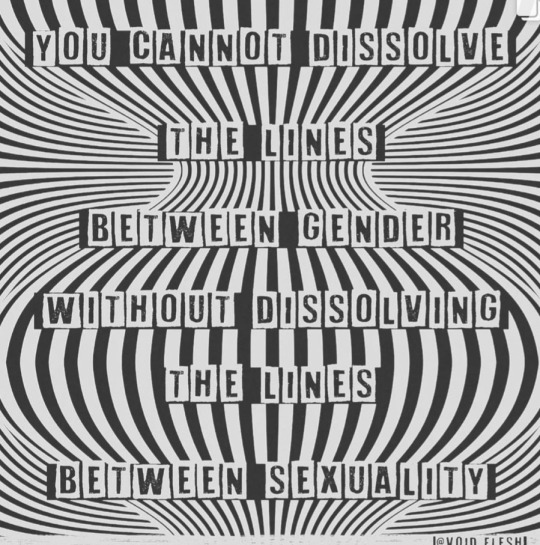#social construction
Text

_Contrast Revels Beauty_
(Beauty=Social Construction)🌹🌱
#woman#woman in black#woman in capture#black and white photography#conceptual photography#beauty#social construction#art
10 notes
·
View notes
Text
Shaping Our Reality: Exploring the Dynamics of Consensus Reality
Introduction:
Reality, as we perceive it, is not a static and universal construct but is profoundly influenced by social, cultural, and historical factors. The concept of consensus reality delves into how shared beliefs and agreements shape our understanding of the world. In this exploration, we will unravel the intricate ways in which these factors interplay to construct the tapestry of our collective reality.
Social Construction of Reality:
Our shared reality is, to a significant extent, socially constructed. Sociologist Peter Berger and Thomas Luckmann introduced the idea that reality is an ongoing, socially negotiated process. Institutions, language, and everyday interactions contribute to the construction of a shared reality. For example, the perception of certain social roles or institutions is deeply embedded in cultural norms and values, shaping our understanding of what is considered 'real.'
Cultural Dimensions:
Cultural perspectives exert a powerful influence on how we interpret and define reality. Different cultures may have distinct worldviews, mythologies, and belief systems that significantly impact their understanding of the world. Cultural lenses shape the significance assigned to certain events, objects, or behaviors, contributing to the diversity of interpretations within our global community.
Historical Context:
The historical backdrop against which a society evolves plays a pivotal role in shaping its reality. Historical events, narratives, and collective memories become integral parts of a shared reality. For instance, the way a society interprets its past, including historical triumphs or traumas, influences its present perceptions and future aspirations.
Consensus Reality and Social Agreement:
Consensus reality emerges through social agreement, where individuals within a community accept certain beliefs or interpretations as valid. This shared understanding allows for social cohesion and cooperation. However, it's crucial to recognize that consensus reality is not universal, and different groups may uphold distinct realities based on their unique social, cultural, and historical contexts.
Media Influence and Perception:
In the contemporary era, media plays a significant role in shaping consensus reality. The dissemination of information, narratives, and images through various media channels contributes to the formation of shared beliefs and perspectives. Media representations influence how we perceive events and issues, contributing to the ongoing construction of our collective reality.
Challenges to Consensus:
While consensus reality provides a framework for social order, it is not immune to challenges. Diverse perspectives, subcultures, and individual differences can lead to conflicts in interpretation and understanding. Acknowledging and navigating these challenges is essential for fostering a more inclusive and nuanced shared reality.
Conclusion:
Our reality is a dynamic and multifaceted entity, intricately woven by the threads of social, cultural, and historical influences. Exploring consensus reality offers insights into the mechanisms that contribute to the formation of our shared understanding of the world. As we navigate this complex tapestry, understanding the impact of these factors is crucial for fostering empathy, dialogue, and a richer appreciation of our diverse human experience.
#philosophy#epistemology#knowledge#learning#ontology#chatgpt#education#metaphysics#psychology#politics#Consensus Reality#Social Construction#Cultural Influence#Historical Context#Media Perception#Social Agreement#Diversity of Perspectives#reality
2 notes
·
View notes
Quote
The mode of production of material life conditions the social, political and intellectual life processes in general. It is not the consciousness of men that determines their being, but on the contrary, their social being that determines their consciousness.
Karl Marx, German Ideology
#structuralism#consciosness#solipsism#social construct#karl marx#marx#german ideology#marx 1859#1859#carl marx#philosophy#19th century philosophy#materialism#social construction#marxism#cultural marxism
8 notes
·
View notes
Text
Thoughts????!!!
#thoughts#race#racism#deconstruction#colonial history#colonizers#USA#social construction#alternative
2 notes
·
View notes
Text
I have found the best ally
Straight and cis people will say that they are allies, but you will NEVER measure up to my dentist.
Me: "Hey, is it ok if I can change my name on my info from [DEADNAME] to Sai?"
Random woman that I wasn't even talking to in the chair next to me: "Honey, if that's the name you had at birth, [DEADNAME] is your only name."
My dentist, very slowly turning her rolley chair towards the woman: "Shush."
Random woman: "Excuse me?"
Destist: *closes privacy curtain while staring bullets at the lady*
Me: *pissing myself laughing*
My dentist while changing my name in my info (reminder that English is not her first language, she immigrated from Russia): "There, Sai, you have pretty boy teeth. Smile and make all girls swoon."
Me not having the heart to tell her I'm not transmasc but I'm Agender, and still pissing myself laughing: "Thank you [DENTIST NAME]."
#trans pride#queer#nonbinary#lgbtqia#queer pride#queer community#lgbtq#lgbtq community#queer joy#queer jokes#queer journey#fuck transphobes#transgender#anti capitalism#anti zionisim#anti trans violence#trans ally#lbgtqia#gender is a social construct#Why are all Russians such good allies I stfg
31K notes
·
View notes
Text

28K notes
·
View notes
Text

autism just keeps winning

it’s because gender is stupid and autistic people aren’t
#gender is a spectrum#gender is fluid#gender identity#gender is a social construct#reposted posts#actually autistic#trans things
41K notes
·
View notes
Text
it really does bother me how no one can seem to answer the question “what even is romantic attraction, really.” like some people are like “it’s who you wanna kiss and cuddle <3” and I’m like ok well kisses and cuddles can be either sexual or platonic depending on context. “It’s who you feel passion/desire/arousal for” well that just sounds like sexual attraction which you can have without even knowing somebody so I fail to see how that’s romantic. “It’s who you want to go on dates with” I go on dates with friends all the time plus “date” is a social construct anyway there’s really no innate difference between a date and hanging out. “it’s who you have deep feelings for” great news for you that can be literally any type of relationship. my friend told me she defined it as “who you wanna give roses to” and I’m like do u hear urself??? like the more I talk to people the more I’m convinced romance and romantic attraction is an elaborate socially fabricated illusion that has no real defining characteristics. and like there’s nothing Wrong with it being a constuct but why people are so attached to defending the supremacy of it is something I cannot for the life of me figure out
#like reading this u might be like ‘sounds like ur just aromantic sis’ but I’m like. listen.#ur missing my point. which is that I literally think romance Does Not Exist#at least not in this bioessentialist way people like to pretend it does#the desire for companionship and the desire for sex are biological drives. everything else is a social construct#which doesn’t mean its bad! or not valid! or anything like that!#but I’m just genuinely do not understand Why we are so bent on treating it like gospel
11K notes
·
View notes
Text
The Social Construction of Gender in the Workplace
In this blog post we will delve into the social construction of gender in the workplace and explore the impact of gender roles on career choices and advancement.

In Lorber's (1994) book Paradoxes of Gender, she delves into the process of constructing gender in society, with a particular focus on the social construction of gender in the workplace.Lorber argues that gender is a social construction, an identity that is created and reproduced in social practices and culture.
In the workplace, the social construction of gender plays an important role. People define and identify the roles of men and women in the work environment based on social and cultural expectations and role stereotypes. These gender role expectations can lead to limitations on women's leadership in the workplace, as well as limitations on men's access to certain career fields. For example, some professions are generally recognised as 'male domains' and women may face gender discrimination and challenges in these fields.
Lorber emphasises that gendered social constructs are not fixed, but can be reconstructed and changed. Gender constructs in the workplace are constantly reproduced through people's behaviour, language and interactions in the work environment. Therefore, to promote gender equality and break down gender stereotypes, we need to focus on changes in organisational culture, gender equality policies and leadership development.
The social construction of gender in the workplace also involves gender differences and pay inequality. Different expectations and evaluations of different genders at work have resulted in women being treated unfairly in terms of pay and career development. This makes the promotion of gender equality and gender diversity an important issue in the workplace.
By recognising and reflecting on the social construction of gender in the workplace, we can promote an inclusive and equitable workplace environment. This requires breaking down gender roles, promoting the concept of gender equality, and providing equal opportunities and resources for everyone, so that every employee can develop their full potential and abilities and contribute positively to the development of the organisation.

In searching for reliable sources on gender studies, I used keywords such as "gender studies", "gender roles", "transgender", and so on. I searched mainly in academic databases and authoritative journals and filtered out the most relevant studies. During my search, I found that there are more studies on the social identity of transgender people, while there are relatively few studies on the social construction of gender in the workplace. By digging deeper, I eventually found two valuable sources and wrote posts about them.
Sources:
Lorber, J. (1994). “Night to His Day”: The Social Construction of Gender. In Paradoxes of Gender (pp. 13–36). Yale University Press.
http://www.jstor.org/stable/j.ctt1bhkntg.5
0 notes
Text

our endings bound
#midnight snacking on some angst#debated whether i should post this or wait for more filler#but time is a social construct#bg3#astarion#staeve
7K notes
·
View notes
Text

Sexuality is a social construct. Prior to the late nineteenth century, there was no concept of a homosexual identity in Western culture.
Sex were acts that were given meaning—sinful, moral transgressions. The shift from homosexual behavior as sin to a ‘crime against nature’ began during the seventeenth century (as early as 1642), where ministers in the American colonies began referring to ‘unnatural lusts of men with men, or women with women’, ‘unnatural acts’ and acts ‘against nature’ (Katz 1983, 43) (119). After the American revolution, the phrase ‘crimes against nature’ increasingly appears in the statures, implying the acts of sodomy offended a natural order rather than the will of God (D’Emilio and Freedman 1988, 122). Even ‘natural’ acts of procreation could be tainted by lust and thus were not free from sin.
Finally, sexologists at the end of the nineteenth century helped create the category of ‘sexual invert’ as an identity, where sexual inversion lied in someone’s psychology. The word ‘heterosexual’ first appeared in American medical texts in early 1890s but didn’t appear in the popular press till 1926 (Katz 1983, 16) (120).
So then queer sexualities have been seen as acts against biblical morality, against nature or against psychology=a moral problem, a physiological problem, and/or a psychological problem (Pronk 1993) (120).
The equation of natural sexual behavior = procreation is conclusively disproven by the sheer diversity of sexual practices in other species (Gaard gives a plethora of examples to support this). “If we look to nature for models of human behavior, we are bound, are we not, to value tolerance and pluralism”(Curry 1990,154)(121)…but we also must recognize that “norms for one species cannot be derived from the behaviors and seeming norms of other species” (121).
#queer history#ecofeminism#heteronormativity#animal sexuality#social construction#sociology#critical thinking#psychology#toward a queer ecofeminism#biological exuberance#diversity
3 notes
·
View notes
Text

#dreamcore#weirdcore#strangecore#oddcore#words#dereality#nostalgia#anti capitalism#anti consumerism#mine#:)#uhh social construct lol
3K notes
·
View notes
Text
Exploring the Depths of Hate: Philosophical Insights into a Complex Emotion
The philosophy of hate delves into the complex nature of this powerful human emotion, seeking to understand its origins, manifestations, ethical implications, and impact on individuals and societies. While hate is a multifaceted and deeply emotional phenomenon, philosophers have explored various theories to shed light on its complexities. Here are some key theories in the philosophy of hate:
Psychological Theories: Psychological theories of hate delve into the cognitive and emotional processes that contribute to the experience of hate. These theories often explore how factors such as fear, resentment, prejudice, and negative experiences can shape and intensify feelings of hatred.
Social Construction: Some philosophers argue that hate is socially constructed, influenced by cultural norms, historical contexts, and social conditioning. Hate can be learned through exposure to biased beliefs and discriminatory behaviors within a particular society.
Group Identity and Othering: Group identity theories suggest that hate often emerges from a sense of belonging to one group and perceiving another group as different or threatening. The process of "othering" involves defining an outgroup as inferior or dangerous, fueling negative emotions and attitudes.
Fear and Threat Perception: Hate can stem from a perceived threat to one's own identity, values, or well-being. Fear of the unknown or unfamiliar can lead to hostility toward those who are seen as different or challenging to one's beliefs.
Dehumanization: Dehumanization theories propose that hate can arise when individuals or groups are stripped of their humanity, making it easier to justify mistreatment or violence. By viewing others as less than human, individuals can distance themselves from feelings of empathy.
Psychological Defense Mechanisms: Hate may serve as a defense mechanism against feelings of vulnerability or insecurity. By projecting negative emotions onto others, individuals can avoid confronting their own anxieties or insecurities.
Power Dynamics: Hate can be exacerbated by power dynamics, where individuals or groups with more power oppress or discriminate against those with less power. Hate can be used as a tool to maintain control, dominance, or social hierarchies.
Identity Politics: Identity-based hate can stem from conflicts over social, political, or cultural identities. People may rally around their own identity group and develop animosity toward those with opposing identities.
Media Influence: The media can play a role in perpetuating hate by sensationalizing and amplifying negative stereotypes, contributing to the spread of biased beliefs and attitudes.
Moral and Ethical Considerations: Philosophers explore the ethical implications of hate and question whether it can ever be justified. Some argue that hate is morally wrong due to its harmful consequences and its role in perpetuating discrimination and violence.
Overcoming Hate: Philosophical discussions on overcoming hate often involve strategies for promoting empathy, understanding, and constructive dialogue between groups in order to reduce tensions and foster reconciliation.
In exploring these theories, the philosophy of hate aims to provide insight into the psychological, social, and ethical dimensions of this complex emotion, ultimately contributing to discussions about how hate can be addressed and mitigated for the betterment of individuals and societies.
#philosophy#epistemology#knowledge#learning#education#chatgpt#ethics#psychology#Philosophy of Hate#Psychological Theories#Social Construction#Group Identity#Fear#Dehumanization#Power Dynamics#Identity Politics#Media Influence#Ethical Considerations#Overcoming Hate
1 note
·
View note
Text

#if the concept of labeling gender is a social construct then so is sexuality!#queer#lgbt#gay#lesbian#bi#bisexual#pan#pansexual#genderfluid#nonbinary#enby#bi lesbian#mspec lesbian#bi gay#mspec gay#trans#transgender
7K notes
·
View notes
Text
Chapter 97: The Lamp
Ahhh, time for a nice, short chapter.
Surely that means my post will be nice and short as well, right? Well, that remains to be seen. There are some interesting ideas to be teased out of this one, I think.
(more…) “”

View On WordPress
#19th century literature#classism#ishmael#Moby Dick#Philosophy#social construction#social justice#whaling#Writing
0 notes
Text
this year my challenge for everyone is to unlearn the association between love and morality. love is not something that is inherently morally good, and the absence of love is not something that is inherently bad. sex without love isn't morally bankrupt, it's just an action. people without love aren't less kind or less good, they're just people. when we can get past this false (and often unnoticed) dichotomy of good love/evil lovelessness then i think we are going to be able to take leaps and bounds in sex positivity, aro advocacy, certain discussions of mental health...
#and also. not the direct focus. but love doesn't make things good. you can be in love and do terrible terrible things.#people do bad things in the name of love and in despite of love all the time.#but!! imagine a world where people could exist as people and not be demonized.#sex positivity means being cool about All sex. reexamine your internal systems of moral judgement.#this goes for sex workers. for aroallo people. especially aroallo men. for aro people in general who might enjoy sex.#and frankly i think it can easily bleed into discussions about mental health disorders around 'not feeling' certain things#especially demonizing ppl who don't feel as much empathy. i think there's definitely a correlation between that and the emphasis on love.#our support needs to go out to Everybody and i think these things are all structured together in one way or another!!#it might not be immediately obvious but when i tell you it all leads back to amatonormativity..... little bit wild.... large bit wild....#anyway. horror movie psychopath 'oh he can't feel emotions or love' damn alright. well. let's take a closer look at that.#silly that there's an association between lack of love and Murdering. feel like that might affect some stuff.#love is just an emotion/a feeling it doesn't mean anything about you one way or another#same with empathy. you can feel it all you want but it doesn't inherently change the actions you choose to take#anyway. thesis statement. there is a socially constructed link between love and morality. unlearn that.#kiss kiss (<— lovelessly)#aromantic#aromanticism#arospec#talking#aroace#aspec#sex positivity
839 notes
·
View notes